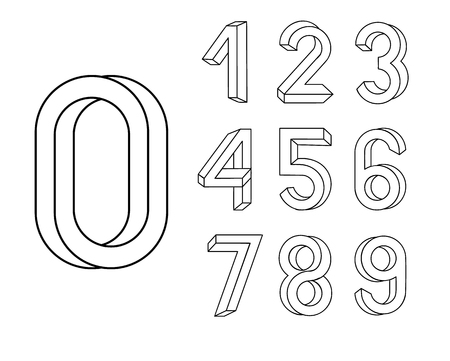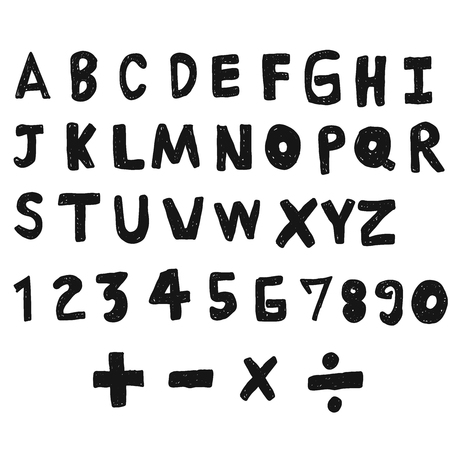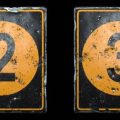Introduction to Numerology in the UK
In recent years, numerology has seen a significant surge in popularity across the United Kingdom. While some may dismiss it as a passing trend, many Britons are turning to this ancient practice for guidance and personal insight. The appeal is not limited to spiritual circles; it extends into mainstream culture, with individuals from all walks of life curious about what their numbers might reveal about their destiny or character. As interest continues to grow, two main systems have gained traction within the British context: Chaldean and Pythagorean numerology. Each system boasts its own methods, historical roots, and claimed benefits. This article aims to unravel the myths and examine whether one system is more accurate or relevant for people living in the UK today.
2. Origins and Methods: Chaldean vs Pythagorean Numerology
When considering whether Chaldean or Pythagorean numerology is better suited for interpreting names and experiences within the British context, it’s vital to understand how each system assigns values to the English alphabet. Both methods have ancient roots, but their application and calculation differ considerably.
Chaldean Numerology: A Brief Overview
Chaldean numerology originated in ancient Babylon and is considered one of the earliest systems of number mysticism. The Chaldeans believed that numbers carried vibrational qualities influencing human life. Their method assigns values based on sound vibrations rather than strict alphabetical order. Importantly, the number 9 is typically omitted from the letter assignments due to its sacred status.
Chaldean Letter-to-Number Assignments
| Number | Letters |
|---|---|
| 1 | A, I, J, Q, Y |
| 2 | B, K, R |
| 3 | C, G, L, S |
| 4 | D, M, T |
| 5 | E, H, N, X |
| 6 | U, V, W |
| 7 | O, Z |
| 8 | F, P |
This approach can pose challenges when directly applied to modern English names common across Britain, given the unique distribution and pronunciation of certain letters.
Pythagorean Numerology: The Western Standard
Pythagorean numerology traces its origins to Ancient Greece and was later adopted widely in Western cultures. Unlike the Chaldean method, Pythagorean numerology assigns numbers sequentially to each letter of the alphabet from 1 to 9 before repeating. This method is straightforward and aligns well with the structure of the English language as used throughout the UK.
Pythagorean Letter-to-Number Assignments (English Alphabet)
| Number | Letters |
|---|---|
| 1 | A, J, S |
| 2 | B, K, T |
| 3 | C, L, U |
| 4 | D, M, V |
| 5 | E, N, W |
| 6 | F, O, X |
| 7 | G, P, Y |
| 8 | H, Q, Z |
| 9 | I, R |
This consistency makes Pythagorean numerology especially accessible for those using the standard English alphabet prevalent across Britain.
The Relevance to British Names and Language Use
The differences in assignment logic between these two systems can lead to quite varied interpretations of names commonly found in Britain. While Chaldean numerology might claim a more mystical accuracy due to its phonetic basis and historical depth, Pythagorean numerology offers a systematic approach that fits neatly with contemporary English spelling conventions. This foundational understanding sets up the practical comparison of accuracy in following sections.

3. Common Myths and Misconceptions
When it comes to numerology, particularly the Chaldean and Pythagorean systems, the British public often encounters a number of persistent myths. A prevalent belief is that one system is inherently more “accurate” or “authentic” than the other, especially when used within the UK’s cultural context. Let’s examine these assumptions with a critical and engineering-minded approach.
Myth 1: Chaldean Numerology Is More Mystical and Therefore More Reliable
Many enthusiasts claim that because Chaldean numerology has roots in ancient Babylon, it carries an air of greater mystique and spiritual authenticity. However, this overlooks the fact that historical origins do not guarantee relevance or accuracy for modern Britain. The system’s alphabetic assignments were never intended for English, which didn’t exist at its inception.
Myth 2: Pythagorean Numerology Fits Better With Western Culture
It is frequently assumed that Pythagorean numerology, credited to Greek mathematician Pythagoras, is more suitable for British users simply because it aligns with Western philosophical traditions. Yet, this view ignores how both systems require significant adaptation to match contemporary English spelling and pronunciation. There is no inherent “Britishness” built into the Pythagorean method.
Misconception: Numerology Offers Scientific Precision
A common misconception is that either system provides precise, scientific insight into personal destiny or character—almost as if numerology could be measured with the rigour of engineering or mathematics. In reality, both systems are based on interpretive traditions rather than empirical evidence. Their results are subjective and can vary widely depending on the practitioner.
The UK Context: Cultural Adaptation Matters
In Britain, where multicultural influences abound and language evolves rapidly, neither system seamlessly integrates with local names or linguistic quirks. Many believe that adapting either system—by tweaking letter-to-number correspondences or interpretation rules—somehow makes them more accurate for British names. However, these modifications introduce further subjectivity rather than increased precision.
In summary, while both Chaldean and Pythagorean numerology have their followers in the UK, claims regarding their comparative accuracy or authenticity should be treated critically. The supposed precision attributed to either system does not withstand close scrutiny—especially when applied in the nuanced landscape of British culture and language.
4. Cultural Nuances in British Names and Language
When exploring whether Chaldean or Pythagorean numerology is more suitable for the British context, it is essential to acknowledge the unique features of British names and linguistic habits. Unlike some cultures where names are rigidly formal, the British often employ a diverse range of given names, diminutives, nicknames, and even double-barrelled surnames. This fluidity can significantly affect numerological calculations, as both systems depend heavily on the spelling and structure of a name.
Traditional vs. Contemporary Naming Conventions
British names have evolved considerably over time. The Victorian era produced many classic names—think Charles, Victoria, or Elizabeth—that still persist today. However, contemporary Britain also embraces multicultural influences and creative spellings (such as “Maisie” or “Jayden”), which can alter the numerical values attributed to each letter depending on the system used.
Common Nicknaming Practices
The British fondness for nicknames adds another layer of complexity. For example, “William” may be known as “Will,” “Bill,” or even “Billy.” Each variant yields different numerological outcomes. The table below illustrates how a single individual’s name variants can lead to distinct readings:
| Name Variant | Pythagorean Value | Chaldean Value |
|---|---|---|
| William | 34/7 | 24/6 |
| Will | 14/5 | 8/8 |
| Bill | 12/3 | 7/7 |
| Billy | 19/1 | 10/1 |
This demonstrates how everyday usage in British society can lead to divergent numerological interpretations based on a person’s chosen or commonly used moniker.
Linguistic Trends and Their Influence
Further complicating matters are regional dialects and linguistic trends across the UK. In some regions, traditional Gaelic or Welsh names (such as “Siân” or “Ewan”) might present challenges for standardised numerology charts developed outside Britain. Additionally, the use of non-standard spellings and hybridised surnames (e.g., Smith-Jones) means that numerologists must be especially attentive when applying either Chaldean or Pythagorean methods.
In summary, the rich tapestry of British naming conventions—from formal titles to affectionate nicknames—means that numerological analysis in the UK requires careful consideration of these cultural nuances. Both systems may yield different results depending on which name form is used, making accuracy partly contingent on understanding local practices and preferences.
5. User Experiences and Popular Examples in Britain
Exploring British Encounters with Numerology
When assessing whether Chaldean or Pythagorean numerology resonates more accurately within the British context, it’s instructive to examine real-world experiences from local enthusiasts. Across forums, community groups, and even in mainstream media, Britons have shared candid testimonials about their encounters with both systems. Many note that the Pythagorean method, with its straightforward alphabet-to-number mapping, appeals to those familiar with Western logic and structured thought—attributes often associated with traditional British education.
Testimonials: Everyday British Numerologists Speak
In interviews featured on BBC Radio 4’s spiritual programming and in personal blogs such as “Numerology UK”, users often describe their journeys. For example, a London-based financial analyst reported that her Pythagorean life path number seemed to align well with career decisions and relationship patterns. Conversely, a Manchester artist found Chaldean numerology’s nuanced interpretations better captured the subtleties of his creative endeavours and emotional shifts.
Media References and Cultural Touchpoints
The popularity of numerology has periodically surged in Britain, especially following high-profile coverage in outlets like The Guardian or appearances on ITV’s “This Morning.” These segments frequently invite practitioners to perform live readings for celebrities or members of the public. Interestingly, reactions are mixed: some participants find the Chaldean system’s mystical roots appealing for its perceived depth, while others prefer the orderly nature of the Pythagorean approach, citing its clarity as a reason for trust.
Patterns and Perceived Accuracy
Despite varying preferences, one trend stands out—Britons seem less concerned with which system is objectively ‘correct’ and more focused on which produces insights that feel personally meaningful or useful. As seen in Facebook groups dedicated to numerology in the UK, discussions rarely reach consensus about superiority. Instead, users often blend both systems or use them situationally depending on life events.
This collection of real-world cases and testimonials reveals a distinctly pragmatic British attitude: accuracy is less about numerical absolutism and more about practical resonance in daily life.
6. Critical Analysis: Do Cultural Factors Make a Difference?
When assessing whether Chaldean or Pythagorean numerology resonates more accurately with the British context, it’s vital to consider the influence of local culture, language, and historical background. The UK’s linguistic heritage is rooted in English, which evolved from Germanic origins and later absorbed Latin, French, and other influences. This contrasts sharply with the ancient languages underpinning both numerological systems: Chaldean numerology was tailored for ancient Semitic scripts, while Pythagorean methods were designed for Greek and later adapted to Latin alphabets.
For many British practitioners, the structure of the English alphabet aligns more seamlessly with Pythagorean numerology, which assigns numbers to each letter from A=1 through Z=26, then reduces them. This system arguably feels more intuitive within a modern British context, where spelling conventions and phonetic patterns fit the Pythagorean model. However, some argue that this convenience may sacrifice depth, as Chaldean numerology claims to account for vibrational qualities not tied strictly to alphabetical order but rather to sound and esoteric tradition.
Cultural context also matters when considering how these systems are interpreted and valued. The British Isles have their own rich history of symbolism, folklore, and mystical traditions—from druidic practices to Victorian occultism. Pythagorean numerology gained popularity in Britain during the 19th century’s spiritualist movement, embedding itself in local esoteric circles. On the other hand, Chaldean numerology remains less mainstream but attracts those seeking something ‘older’ or more exotic.
Ultimately, defining ‘accuracy’ in numerology is complex. If we measure accuracy by personal relevance and cultural resonance, then the system most embedded in everyday language and historical experience—the Pythagorean—may feel more meaningful to most Brits. Yet for individuals drawn to cross-cultural exploration or seeking wisdom outside Western paradigms, Chaldean numerology can offer a distinctive perspective.
7. Conclusion: The Practical Value of Numerology in the UK
Summing up our exploration of whether Chaldean or Pythagorean numerology is more accurate for the British context, it becomes clear that neither system can claim scientific superiority, especially when examined through a pragmatic British lens. Both traditions have their unique historical roots and methodologies, but their value lies more in personal reflection and entertainment than in empirical fact. In contemporary Britain, numerology often serves as a light-hearted tool for self-discovery or conversation rather than a definitive guide to life’s decisions. For many, calculating name numbers or exploring personality traits via numerological charts provides an enjoyable way to engage with cultural heritage, personal identity, or even just spark a chat down the pub. However, it’s important to maintain a healthy scepticism—something deeply ingrained in the British psyche. Numerology should be appreciated much like a good cup of tea: comforting and familiar, but not necessarily imbued with mystical powers. Ultimately, the role of numerology in the UK is best seen as supplementary—a personal or social curiosity rather than a substitute for sound judgment or scientific reasoning. Whether you lean towards Chaldean or Pythagorean methods, remember to enjoy the process without losing sight of critical thinking.

